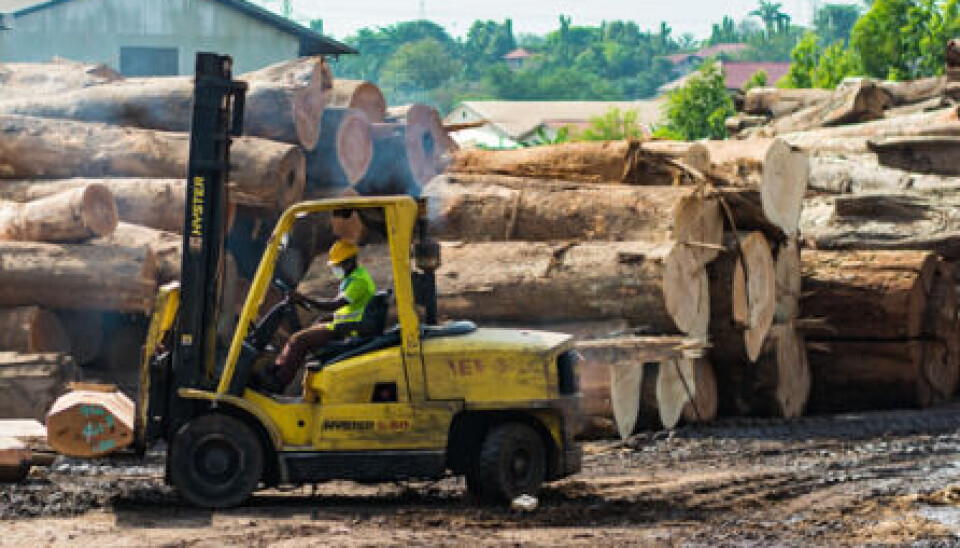Copyright : Re-publication of this article is authorised only in the following circumstances; the writer and Africa Legal are both recognised as the author and the website address www.africa-legal.com and original article link are back linked. Re-publication without both must be preauthorised by contacting editor@africa-legal.com
Ghana strengthens EU ties as the first African nation to issue sustainable forestry licenses

In an historic milestone, Ghana yesterday became the first African nation, and second globally, to issue Forest Law Enforcement, Governance and Trade licenses, opening up verified, legal timber exports to the European Union
The launch yesterday of Ghana’s first Forest Law Enforcement, Governance and Trade (FLEGT) license, following the successful go-live on Friday of its long-awaited FLEGT license system, is the culmination of sixteen years of legal and industry reform, collaboration, and investment, solidifies Ghana’s leadership in sustainable forest governance and legal timber trade, and strengthens trade ties with the EU.
Ghana’s commitment to legal timber sourcing will attract investors, develop the timber industry, and create good jobs, noted HE Irchad Razaaly, the EU Ambassador to Ghana, in the final months of the long process. Ghana is the first African country, and only the second globally after Indonesia, to issue FLEGT licenses.
Yesterday’s launch is an historic step in a complex process that began twenty years ago with informal discussions about Ghana signing a voluntary partnership agreement with the EU (which after various negotiations was then signed and ratified in 2009), and has involved multiple joint monitoring and review mechanisms meetings and assessments of legality assurance systems, and the adoption of Timber Resources Management and Legality Licensing Regulations.
Some of the final steps occurred last month, with the ratification of 131 Timber Utilisation Contracts (TUCs) by the Ghanaian Parliament, overcoming the last regulatory hurdle that cleared the way for implementation of FLEGT licensing.
More than 350 industry operators have been trained in the FLEGT licensing process, ensuring smooth transactions for international buyers. Such licenses certifies timber and related products exported to the EU are legally harvested and processed in accordance with Ghanaian laws. Products covered by a valid licence automatically comply with the EU Timber Regulation, ensuring seamless access to the EU market.
Ghana is leading the way for both the African continent and more broadly in sustainable management of tropical forests, with several other African nations including Cameroon, Central African Republic, Liberia, Republic of the Congo, Cote d’Ivoire, Gabon, and the Democratic Republic of the Congo all in various stages of VPA-FLEGT system negotiation, agreement, and implementation with the EU.
A global study published in May, “Collecting evidence of FLEGT-VPA impacts”, which synthesized qualitative and quantitative evidence of the scheme’s impacts in seven countries across Africa, Asia, and Latin America, found that on average, VPAs are perceived to have contributed to 40% of reported improvements in forest conditions.
It was an even stronger contributor in Ghana and Republic of the Congo.
The VPA process was also found to have contributed significantly to more coherent regulations, increased transparency, a decrease in illegal logging and trade, more sustainable forestry practices, and broader economic development including a more positive image of the VPA nations and perception as more reliable business partners.
After meeting with EU Ambassador Razaaly in April, Ghana’s Minister for Lands and Natural Resources, Emmanuel Armah-Kofi Buah, reaffirmed Ghana’s commitment to strengthening its longstanding partnership with the EU, one of Ghana’s most significant trading partners (accounting for approx 14% of trade volumes in 2022).
